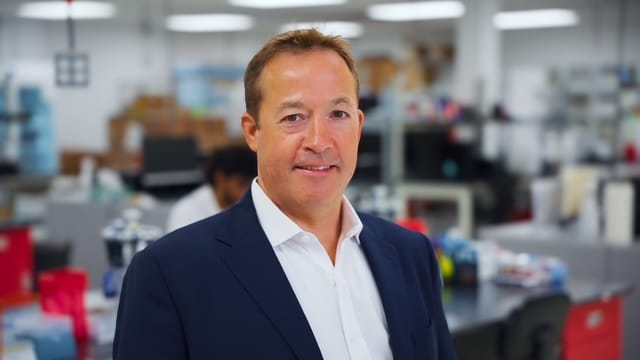There’s a lot of confusion around the roles of health coach and healthcare practitioner. Is one “better” or more valuable than the other?
Most of us have been treated by a doctor, but not everyone has experienced coaching. That lack of familiarity leads some to conclude that practitioners must be more important than coaches.
In reality, both practitioners and coaches share the same goal: helping people feel better. They just use different approaches to do this essential work.
Practitioners are biochemical detectives: they test, diagnose, and treat illness. Health coaches are change activators: they work one-on-one to turn intentions into lasting habits and mindset shifts. One offers medical expertise and clinical insight; the other delivers accountability and action.

In a truly effective healthcare system, these two roles complement each other to help patients improve their quality of life.
What Is a Healthcare Practitioner?
The word practitioner literally means “one who practices an art,” and its usage varies widely. In the United States, it typically refers to licensed health professionals who diagnose, treat, and manage disease; outside the US, its usage can be even broader.
For the purposes of this article, a healthcare practitioner is a licensed professional trained to assess symptoms, identify conditions, and develop evidence-based treatment plans. They play a central role in clinical care, working at the biochemical level: ordering and interpreting laboratory tests, diagnosing, and prescribing treatments. Their work is grounded in rigorous training in biology, chemistry, and medical science.
In the US, “practitioner” generally includes:
- Medical Doctor (MD): Diagnoses and treats illness, prescribes medications
- Doctor of Osteopathic Medicine (DO): MD equivalent, with additional training in manual manipulation
- Nurse Practitioner (NP): Provides primary and specialty care, including prescribing and diagnosis
- Physician Assistant (PA): Diagnoses, treats, and prescribes under physician supervision
- Registered Nurse (RN): Delivers clinical care, often in coordination with MDs or PAs
- Registered Dietitian (RD): Provides nutrition therapy for disease prevention and management
- Physical Therapist (DPT): Helps patients recover movement and manage pain
- Pharmacist (PharmD): Manages medications and educates patients
- Certified Nurse Midwife (CNM): Offers comprehensive reproductive and maternal care
- Professionals who hold a state license to practice as a healthcare practitioner, such as clinical psychologists, social workers, dentists, or occupational therapists
Practitioners are often seen as clinical “problem-solvers” in the healthcare system. When you need someone who can pinpoint what’s wrong on a biochemical level and prescribe a treatment plan, choose a practitioner. Their expertise is essential for diagnosing conditions and initiating clinical care.

Here’s what practitioners don’t do: Most aren’t trained to support the day-to-day challenges of behavior change or hold space for the mental and emotional needs of their patients. They may tell you what to do to improve your health, but not how to implement those changes or stick with them when motivation dips, life gets messy, or emotional roadblocks arise.
For that, you call a health coach.
Training Red Flags: A Shortcut to Practitioner?
If you’re in the US and exploring practitioner training, be wary of programs that promise a quick, watered-down “practitioner” credential. Using this title doesn’t guarantee you’ll gain the clinical authority or scope of practice that regulated practitioners hold.
Before you enroll, ask:
- What methodologies will you learn? Will the curriculum cover hands-on diagnosis, prescribing, and lab interpretation—or just theory?
- What skills are they actually teaching? Does the program emphasize clinical protocols, behavior-change strategies, or only general health concepts?
- What will you have the authority to do? Are graduates capable and qualified to apply their skills safely and legally with real patients? What skills will you leave with—and will you be qualified to use them with patients?
Be skeptical of shortcuts. Becoming a true healthcare practitioner requires years of accredited education, supervised clinical hours, and licensure exams. The title may sound fancy, but it’s more important that your training matches the real-world responsibilities you want to hold!

What Is a Health Coach?
A health coach is a change activator who helps clients turn health goals into real, lasting results. Some clients come to coaching with a diagnosis or treatment plan from a practitioner; many more seek out coaching because they desire change but struggle to put recommendations into practice.
Practitioners focus on the “what.” Coaches focus on the “how.”
A good coach is skilled in areas like:
- Behavior change and habit-building: Applying behavior change techniques to move clients through the stages of change.
- Accountability and support: Holding space for setbacks and celebrating progress, so clients keep going even when motivation dips.
- Mindset and emotional work: Integrating mental, emotional, spiritual, and physical dimensions to empower clients to own their progress.
- Deep listening and powerful questions: Using motivational interviewing and other coaching skills to uncover core beliefs, identify barriers, and discover what truly works.
Because health coaching is still an emerging profession, the title “coach” is less regulated than “practitioner.” As such, coach training varies widely, from rigorous programs aligned with the National Board of Health & Wellness Coaching (NBHWC) or the International Coaching Federation (ICF) standards to minimal-requirement courses. It’s crucial to choose a training program that teaches a science-backed methodology (often rooted in functional medicine principles) and emphasizes practical, expert coaching skills.

Coaching fills a gap in the healthcare system by translating clinical insights into sustainable action. Coaches create a space of human connection where clients can transform not just their habits but themselves, too—an essential service that practitioners don’t always have the time or tools to address.
The International Perspective: A Blurry Line
Outside the US, the distinction between health practitioner and health coach can blur even further. In many countries, the word practitioner simply means “one who practices and art or methodology”—it isn’t reserved for those who diagnose or prescribe. Clients worldwide tend not to think in terms of coaches vs. practitioners; they just want someone who can help them feel better.
If you’re working outside the US, it’s important to remember that:
- Titles don’t guarantee scope. A “health practitioner” training program might teach coaching methods, while a “health coach” credential could include extensive training in physiology or functional medicine.
- Coaching is still new. In regions where coaching is emerging, most people have never experienced a coach’s deep-listening and behavior-change support. They may assume that “practitioner” must be more valid than “coach.”
- Look beyond the label. When choosing a training program or a provider, ask: What skills and methodologies do they teach or practice? Is their expertise in behavior change techniques or clinical protocols?
To understand a provider’s true expertise or value, don’t rely on titles alone. Instead, focus on their actual training, scope of practice, and measurable outcomes, no matter what label appears on their certificate.
Why FMCA Certifies Health Coaches, Not Practitioners
Many prospective students come to FMCA hoping to train as practitioners because that’s the only role they know. Some even assume practitioners sit atop a healthcare hierarchy, while coaches do less vital work. Nothing could be further from the truth.
Practitioners excel as biomedical detectives, uncovering clinical root causes and crafting treatment protocols. But protocols need activation. Information alone does not create lasting change. The Coach Approach fills this gap by translating medical expertise into action. Health coaches guide clients in implementing treatment plans and navigating practical and emotional barriers to drive real transformation.
- Meet clients where they are, listening without judgment and honoring each person’s unique starting point.
- Translate knowledge into action, guiding clients through proven behavior-change frameworks so they can adopt and sustain new habits.
- Integrate the whole person, addressing mental, emotional, spiritual, and physical dimensions to ensure change feels attainable and meaningful.
- Empower ownership, helping clients set their own goals and celebrate progress, building confidence that extends well beyond the coaching relationship.
Coaching isn’t second-tier work—it’s indispensable, relationship-based, and transformative. FMCA equips its graduates with science-backed methodologies and masterful coaching skills so they can drive real impact, one client and one community at a time.

When each role is understood for its unique strengths, practitioners and health coaches can work together in complementary ways. Practitioners bring clinical expertise, while coaches turn that expertise into daily habits and lasting change.
Health coaching is a distinct and essential profession. It’s grounded in behavior change, fueled by human connection, and focused on real-world progress. Ultimately, this work isn’t about titles, it’s about impact. And that’s exactly what health coaches are here to make.
Our Latest Blogs
-

Would You Be a Good Health Coach?
Read Full Article: Would You Be a Good Health Coach? -

Food Sensitivity Testing 101: Supporting Clients with Inflammation and Gut Issues
Read Full Article: Food Sensitivity Testing 101: Supporting Clients with Inflammation and Gut Issues -

Protein 101: The Health Coach’s Guide
Read Full Article: Protein 101: The Health Coach’s Guide

